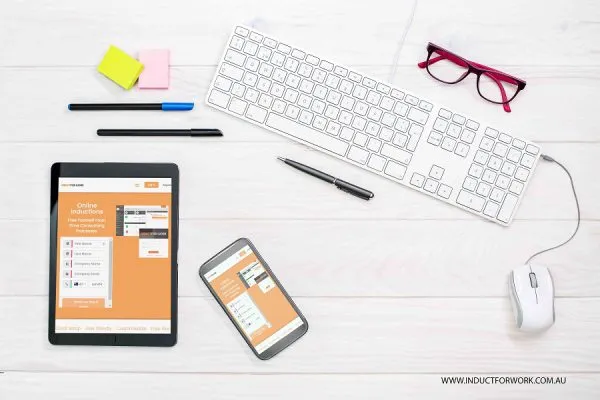8 ways of helping employees’ mental health while working from home
Working from home isn’t always as idyllic as it may sound. There can be so many distractions – and a serious lack of boundaries – compared to an office setting. Additionally, your home is a place associated with rest, not work, so, for many of us, working from home requires lots of self-control which, in turn, can lead to mental exhaustion due to the amount of energy required to stay vigilant in order to get your work done in a home setting.
It’s near impossible working from home without self-discipline and so many of us find ourselves having to work from home whether we like it or not. In order to work from home successfully, it is crucial employees adapt new methods of conducting business and actively keep themselves motivated and undistracted by constant interruptions. All this without the added burden of those mundane, daily tasks that are demotivating and can negatively impact productivity.
In order to ensure your workers remain productive, it is important to help them maintain their mental health, especially during these unprecedented times.
Here are 8 ways of helping staff remain mentally strong while working from home or just as part of their normal way of working:
1. Encourage employees to have designated workspace
Employees should maintain a separate space dedicated purely to work, preferably somewhere quiet and away from distractions, so working on the kitchen table isn’t ideal if they live with other people. If they do live alone, this may work, so take it on a case-by-case basis.
Ensuring employees have a separate work area will block most disturbances and unproductive desires during work hours, such as taking a nap (if they’re working in their bedrooms) or playing with kids who, due to coronavirus, may be learning remotely from home, too. The best bit is that once work time is complete, they can leave the workspace and enjoy their mind-liberating free time with their family without constantly being reminded of work. This separation of work and home life – even though they’re working from home – will help employees maintain some sort of balance during these unprecedented times.
2. Stay in touch with your employees
Depending on a worker’s family situation, there can be minimal human interactions while working from home. The situation can be particularly trying for employees living alone because the pandemic has greatly impeded contact and, employees can go days, if not weeks and, in some places, months.
Us humans are social creatures and isolation can affect our mental wellbeing negatively. Set up weekly, if not daily, virtual meetings by Zoom or some sort of video software for work and interactions to help employees have regular human engagement. Try team meetings and/or weekly company check-ins where everyone gets together, even if only to discuss how they’re going.
Some questions you could ask are:
- What has been your biggest achievement this week? This could be a personal achievement or a work achievement.
- What are you working on today/this week?
- What is your biggest work challenge at the moment?
You could add some variety by having ‘fun’ sessions once a week where you ask employees about themselves:
- Share something we don’t know about you
- What is your favourite place to visit?
- If you could live one person’s life for a day, who would it be?
3. Encourage workers to maintain a regular work schedule
As an employer, it is imperative to give employees working from home a daily or weekly work schedule – but one that is doable within their allocated working hours. Having a working period prevents them from carrying forward work into their resting time, which is all too easy to do when working from home.
Time designations help employees psychologically detach from work during resting periods. Psychological detachment is good for the mind. It not only keeps employees from both physical and mental lethargy but also helps their minds stay rejuvenated. Work time must e work time but, equally, rest time must be rest time!
4. Provide support for struggling employees
There are staff who will be adversely affected by isolation and the circumstances around coronavirus can amplify these affects. While some employees may be coping well and love working from home, others may be experiencing anxiety. Remember, your staff members’ home lives may include many things you don’t know about, from domestic violence to financial difficulties.
For struggling employees, providing a safe place for them to find solutions to their mental health is crucial. Work with your HR people to come up with a health plan for your employees’ mental wellbeing. If you don’t have one, you can use Induct for Work’s template.
The most important thing about having a Mental Health plan is ensuring staff know it exists, so be sure to communicate its availability to staff so they know help is available and how to access it.
5. Create a culture of mental health awareness
One of the ways to get employees to engage in company goals and objectives is involvement. As an employer, you need to show employees that you care about their mental wellbeing and involve them in the solution development process. Additionally, let them know that your company values their mental wellbeing and has avenues to helping them stay healthy.
This will ensure staff are not embarrassed or frightened of discussing any potential mental health issues which will help them – but, hopefully, will also prevent them getting worse.
6. Refrain from work-related communication during resting time
An evening email or a call may seem so innocent enough, however, it may have surprisingly negative impacts on an employee. Only engage with your working from home employees about work during designated working hours. Avoid sending work emails, calls, or extra work when they are supposed to be off work. Additional work commitments interfere with their rest and change their mental state. Therefore, respect your employee’s rest time.
7. Create beneficial avenues of distractions
One way of helping employees benefit while working remotely during the coronavirus pandemic – or just in general – is through online training.
Present platforms for employees to sharpen their skills through online workshops or if you don’t have capacity to do so, sign up to an online learning platforms which allow people to learn skills aligned with their jobs. These workshops will keep them engaged and doing practical work. Workshops also boost mental health and add productive variety to the working week.
8. Be empathetic
As a leader, employees need to know you care about their work conditions. Therefore, be available and consider their input. Actively ask for it, either one-one-one or through company-wide communications, Let them know that they can count on you when they feel overwhelmed by engaging with them on mental health issues.
Working from home is challenging because of the many distractions and lack of boundaries compared to an office setting. However, the above methods will help in eliminating most of these distractions.
Do you have any questions or great tips to share?
Induct for Work – the only online induction system you would need to run online inductions.



